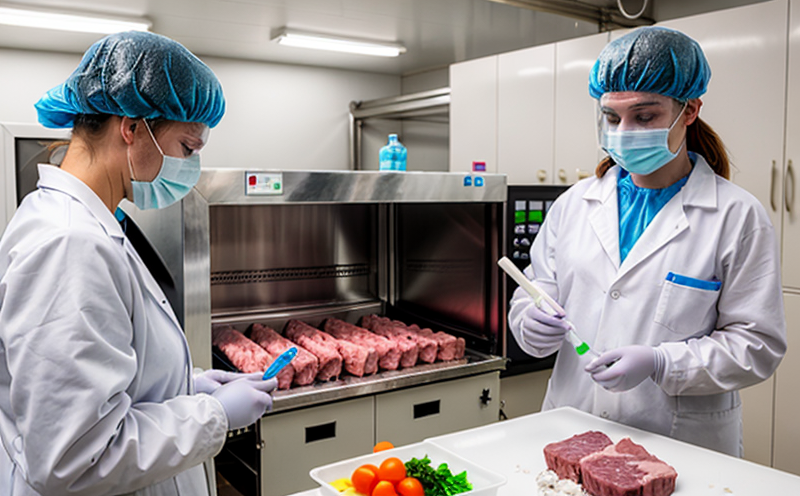Dairy & Meat Microbiology Testing
In the realm of dairy and meat microbiology testing, ensuring food safety is paramount. This service focuses on detecting and quantifying microorganisms that may pose health risks to consumers. Whether it's pathogenic bacteria like Salmonella or Listeria, spoilage organisms such as Pseudomonas, or beneficial yeasts and molds, the goal is to provide a comprehensive assessment of microbiological quality.
The testing process begins with sample collection, which involves swabbing surfaces, taking direct squeezes from packages, or cutting sections from products. Samples are then processed using enrichment broths and plating techniques to enhance microbial growth. Advanced molecular methods, such as PCR-based analyses, offer rapid identification of specific pathogens.
Microbiological testing is critical in the dairy sector for ensuring milk safety before pasteurization. In meat processing, it helps verify hygiene standards post-harvesting and during storage. Compliance with international standards like ISO 16865-1:2017 ensures that all procedures meet global benchmarks.
The importance of microbiology testing extends beyond basic detection; it encompasses understanding the microbial load, identifying potential contaminants, and validating hygiene protocols. This knowledge enables stakeholders to make informed decisions about product quality and safety. Properly conducted tests can prevent recalls, protect brand reputation, and ensure adherence to regulatory requirements.
For quality managers and compliance officers, this service provides invaluable data that supports strategic planning and operational improvements. R&D engineers benefit from insights into microbial behavior under different conditions, while procurement teams gain assurance about the safety of raw materials.
Why It Matters
The significance of microbiology testing in dairy and meat products cannot be overstated. Pathogenic microorganisms such as Salmonella spp., Listeria monocytogenes, and Escherichia coli O157:H7 can cause severe illness or even death if not properly controlled. Spoilage organisms like Pseudomonas aeruginosa and yeasts/molds can lead to product spoilage and waste.
Consumer trust in food safety is a key driver for microbiological testing. Regular testing demonstrates a company's commitment to quality and compliance, which ultimately protects public health. Regulatory bodies worldwide enforce strict standards to ensure that dairy and meat products meet safety criteria before reaching the market.
Industry Applications
- Dairy Farms: Ensuring milk quality through regular testing of raw materials.
- Milk Processing Plants: Monitoring pasteurization processes and post-processing hygiene levels.
- Meat Packing Plants: Verifying hygiene during slaughter, processing, and packaging stages.
- Retailers & Distributors: Confirming product safety before distribution to the consumer market.
International Acceptance and Recognition
- Dairy Products: ISO 16865-1:2017 specifies microbiological criteria for milk and dairy products, ensuring consistent quality standards.
- Meat Products: The Codex Alimentarius sets international food safety standards including those for meat products to ensure uniformity across borders.





